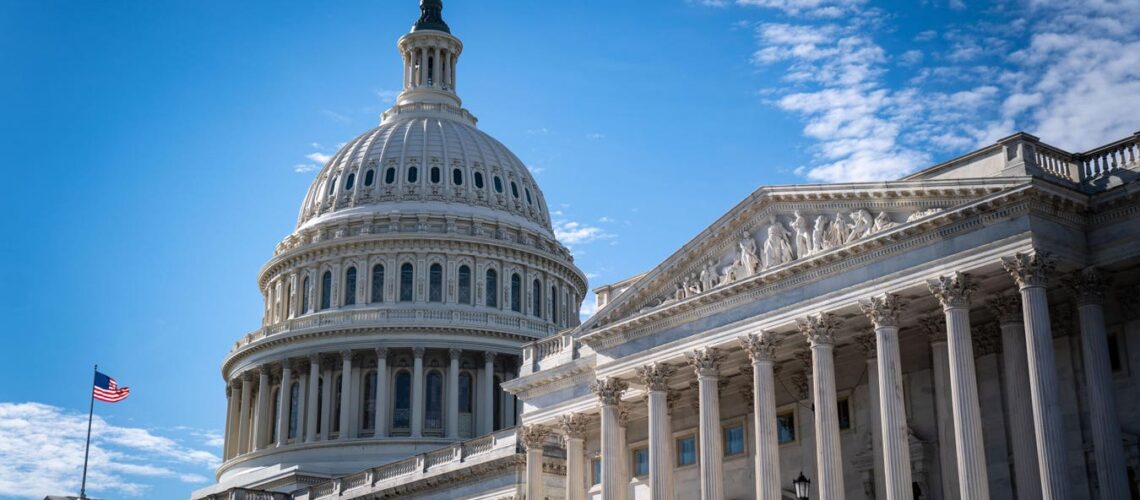Why Republicans Are Warming To Extending Obamacare Subsidies
January 5, 2025

- Mass Health Connector extends deadline for residents who need health insurance coverage
- EPIC Names Rosson Northern California Growth Leader; Lara Makes Reappointments to CIGA Board
- Storm-related insurance claims for ice, snow and falling trees
- Arthur J. Gallagher Expands Austin Footprint with Strategic DMc Insurance Partners Acquisition
- Health care cost sharing ministries left some members to pay high childbirth bills
Republican members of Congress who once opposed expanding – and even wanted to repeal – the … [+]
Bạn đang xem: Why Republicans Are Warming To Extending Obamacare Subsidies
Republican members of Congress who once opposed expanding – and even wanted to repeal – the Affordable Care Act are coming around to extending subsidies that allow more Americans to buy individual coverage, also known as Obamacare.
Veteran U.S. Sen. Lisa Murkowski, a Republican from Alaska, told an Anchorage journalist last week that she supports extending the subsidies, which expire at the end of this year. Her comments come as health insurers, supporters of the law and others tout bipartisan benefits that have helped more than 20 million Americans gain coverage via the ACA’s exchanges, also known as marketplaces.
“I think you’re going to have a fair share of back and forth from those who say, ‘It came about in a law that we didn’t like, and we need to get rid of them, we shouldn’t have subsidies,’” Murkowski said in a question-and- answer session with Nathaniel Herz of the Northern Journal. “But you tell me any place, any place in the country, where your healthcare costs or insurance are going down and making things easier for families. If it’s happening, I’m sure not hearing it.”
To be sure, the cost of health insurance continues to rise as Americans seek more procedures and hospital care due in part to pent up demand following the end of the Covid-19 pandemic. Meanwhile, the cost of prescription drugs is on the rise, particularly from GLP-1 drugs hailed for their ability to help people lose weight but can cost $1,000 or more a month for those without coverage.
But the subsidies, which make health insurance premiums more affordable for individuals, were expanded thanks in part to moves by the Biden administration and the Democratic-controlled Congress, which passed the Inflation Reduction Act of 2022 which allowed more Americans to buy coverage. The subsidies have contributed to record enrollment in individual coverage, which is also more widely available as health insurance companies have pushed into more markets, including Republican-leaning states that have long opposed expanding Medicaid for poor Americans.
“For the tax credits to continue, yeah. I think we’re going to have to,” Murkowski told the Northern Journal. “I don’t know what that may exactly look like — whether it’s just a straight extension, I don’t know. But I think we’re going to have to wrestle with this, and I think we’re going to be hearing a lot from our constituents on it.”
When Donald Trump — who was elected in November in the presidential race against Vice President Kamala Harris — was in office from 2017 to 2021, he and Republicans in Congress tried and failed several times to repeal the ACA, the signature legislative achievement of former President Barack Obama. It remains unclear what Trump’s healthcare agenda will be in his second term that begins later this month because he has yet to reveal a healthcare plan.
But lobbies in Washington including health insurers are increasingly talking about what the subsidies and the ACA have done to help more Americans gain coverage. Should the Trump administration and the Republican-controlled Congress eliminate or reduce subsidies, premium costs would soar double-digit and even triple-digit percentages, health insurance executives say.
Take Sarah London, chief executive officer at Centene, which is one of the biggest providers of government-subsidized health benefits with more than 4 million Americans enrolled in individual coverage it sells under the Ambetter brand.
Xem thêm : Advocacy Groups Ask FIO to Release Homeowners Insurance Data Collected by NAIC
At Centene’s investor day last month, London cited examples in certain Republican-leaning states, particularly those that have not expanded Medicaid coverage under the ACA, as to how much premiums would rise if subsidies were eliminated.
Take Florida where more than 4 million people are enrolled in individual coverage under the ACA. “98% of them rely on tax credits to make that insurance affordable,” London said. And in Louisiana where median household income is “just over $45,000 per year and 97% of members enrolled in the marketplace receive a subsidy. . . removing this subsidy for families at 300% of the (federal poverty level) could increase their net premiums by almost 900%.”
Given the potential impact on low-income Americans, London said eliminating the subsidies is “a scenario we view as less than likely given the widely understood bipartisan support for affordable healthcare coverage at the state level.”
“We believe everyone should be concerned about the impact changes here would have on low-income Americans,” London told analysts and investors. “We look forward to working with this administration to design a solution that will give small business owners, individuals and families access to affordable, high quality, customized and portable coverage regardless of income level.”
Health insurers in recent years have also targeted the booming market of workers who don’t have employer-based health insurance coverage. Mark Bertolini, chief executive of Oscar Health, has said the insurer has been targeting with great success the large U.S. gig economy of about 58 million independent workers.
Just after Trump was elected in November, Oscar executives said their company is “positioned for long-term growth — appealing to GOP desires for consumer choice and a free market approach.”
Nguồn: https://propertytax.pics
Danh mục: News
